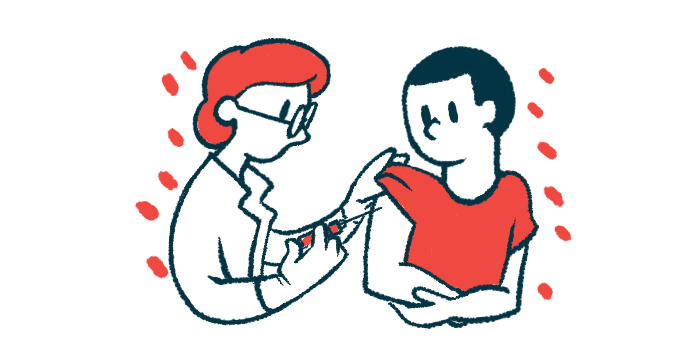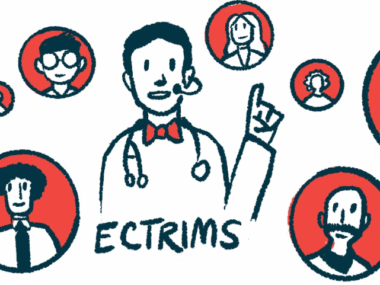Positive results found for new under-the-skin Ocrevus formulation
Findings of Phase 3 trial comparable to those for approved MS therapy
Written by |

A new formulation of Ocrevus (ocrelizumab), given as a 10-minute under-the-skin injection, was comparable to the approved intravenous version of the therapy in people with multiple sclerosis (MS), according to top-line results from a Phase 3 clinical trial.
The medication’s developer, Roche, is planning to submit data from the OCARINA II study (NCT05232825) to regulatory authorities worldwide to support the approval of this more convenient formulation of Ocrevus.
“These results give people living with MS the possibility to receive the transformational benefits of Ocrevus in the way best suited to their lives while freeing up time and healthcare resources,” Levi Garraway, MD, PhD, chief medical officer and head of global product development at Roche, said in a company press release.
OCARINA II study studied subcutaneous Ocrevus formulation
Ocrevus is a monoclonal antibody designed to destroy B-cells, a type of immune cell with a central role driving inflammation in MS. It’s approved to treat relapsing types of MS, and is the first and only therapy authorized to treat primary progressive disease (PPMS).
The approved version of the therapy is given twice yearly via intravenous or into-the-bloodstream infusion. Each intravenous infusion usually takes about two hours, but the total appointment time for each infusion can last four to six hours in total. Prior to the treatment, patients are given anti-inflammatory corticosteroids and antihistamines; following each infusion they are observed for at least one hour.
The new formulation Roche is developing also is given twice yearly, but through subcutaneous or under-the-skin injections that typically last 10 minutes. Thus, it provides an alternative dosing regimen patients typically find to be more convenient.
This new subcutaneous injection will allow Ocrevus to be administered in 10 minutes twice a year, helping people living with MS to spend less time in treatment for this disease.
Moreover, because it doesn’t require the infrastructure needed for intravenous infusions, the subcutaneous formulation allows access to Ocrevus in additional MS centers. Together with the shorter administration time, this can meaningfully reduce the burden of treatment on patients.
“This new subcutaneous injection will allow Ocrevus to be administered in 10 minutes twice a year, helping people living with MS to spend less time in treatment for this disease,” Garraway said.
This formulation contains a lab-made version of the enzyme human hyaluronidase PH20 (rHuPH20), which can break up certain large sugar molecules in the space under the skin to allow the medication’s active ingredient to get into the bloodstream.
The Roche-sponsored OCARINA II trial was designed to compare the new formulation against the approved formulation in people with MS. The trial enrolled 236 adults with relapsing MS or PPMS.
The trial’s main goal was to evaluate whether the new formulation would lead to comparable levels of the therapy in the body over 12 weeks or about three months of follow-up. Top-line results show this goal was met, with both formulations showing comparable pharmacological properties.
Data also showed that the two formulations were comparable at reducing brain lesions visible on MRI scans. The safety profiles of the two formulations also were similar, according to Roche.
The company said full data from the trial will be presented at a future medical conference.



